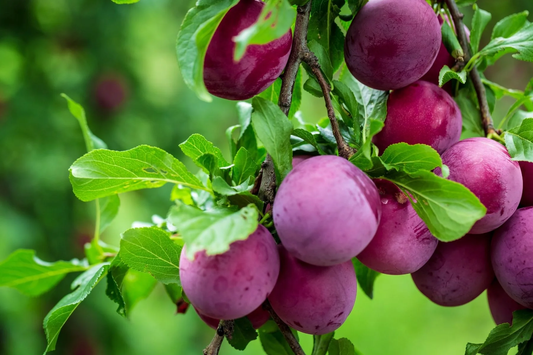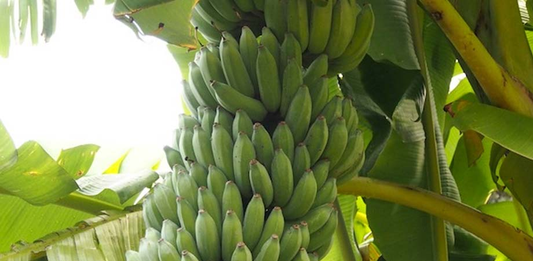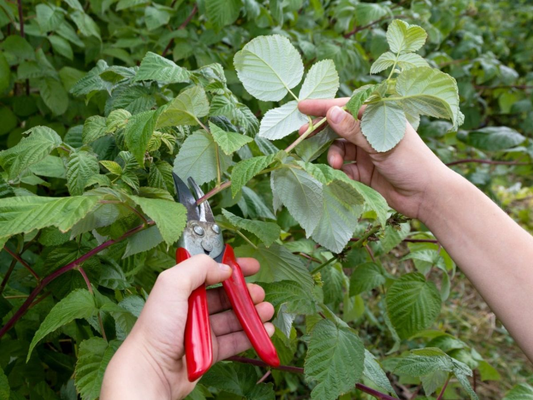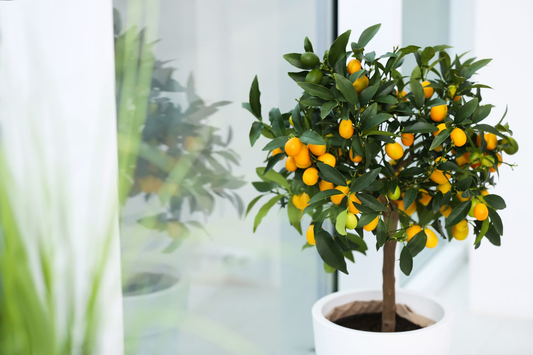Top Picks for the Best Seeds for Beginners: Grow Your Garden with Confidence!
Share
Table of Contents
1. Introduction
Gardening is a fulfilling and rewarding hobby that can provide numerous benefits, especially for beginners. One of the most crucial aspects of starting your gardening journey is selecting the right seeds. Choosing the appropriate seeds can significantly impact your gardening success, ensuring that you grow healthy plants that thrive in your environment.
Here are some key reasons why starting with the right seeds is essential:
- Maximizes growth potential: Quality seeds are more likely to germinate and produce robust plants.
- Enhances resilience: Selecting seeds suited to your climate helps plants withstand local conditions.
- Increases yield: Proper seed choices can lead to higher production of fruits, vegetables, or flowers.
For beginners, gardening offers a plethora of benefits:
- Improves mental well-being: Gardening can reduce stress and promote relaxation.
- Encourages healthy eating: Growing your own vegetables and herbs can lead to a more nutritious diet.
- Fosters a connection with nature: Gardening allows you to appreciate the beauty and complexity of the natural world.
- Provides a sense of accomplishment: Watching your seeds grow into healthy plants can be incredibly satisfying.
This article will guide you through:
- The significance of selecting the right seeds.
- Factors to consider when choosing seeds.
- A curated list of the best seeds for beginners, including vegetables, herbs, and flowers.
- Practical tips for successfully growing seeds.
- Common mistakes to avoid when starting seeds.
- Where to buy the best seeds.
By the end of this article, you’ll be equipped with the knowledge and confidence to start your gardening adventure successfully!
| Key Benefits of Choosing the Right Seeds | Benefits for Beginners |
|---|---|
| Maximizes growth potential | Improves mental well-being |
| Enhances resilience | Encourages healthy eating |
| Increases yield | Fosters a connection with nature |
| Ensures healthy plants | Provides a sense of accomplishment |

2. Why Choosing the Right Seeds Matters
Selecting the right seeds is one of the most critical decisions you will make as a gardener. The seeds you choose directly influence the success of your gardening endeavors, as they lay the foundation for healthy plants and abundant harvests. Here’s a closer look at why seed selection is so important:
-
Impact on Gardening Success:
- Germination Rates: High-quality seeds typically have higher germination rates, meaning more plants will sprout and grow. Choosing seeds that are certified organic or from reputable sources can greatly enhance your chances of success.
- Resilience: Seeds that are bred for your specific climate and growing conditions are more likely to thrive. For instance, selecting drought-resistant varieties for arid regions ensures that your plants will survive even in challenging conditions.
- Adaptability: Some seed varieties are better suited to specific soils or pest conditions, making them easier to grow for beginners. This adaptability can reduce frustration and increase your enjoyment of gardening.
When it comes to choosing seeds, certain types are particularly beginner-friendly. Here are some characteristics of seeds that make them suitable for novice gardeners:
-
Easy-to-Grow Varieties:
- Fast germination times help beginners see quick results.
- Hardy plants that can tolerate some neglect are perfect for those just starting out.
- Varieties that are less prone to pests and diseases make for a smoother gardening experience.
Additionally, growing from seed offers several advantages compared to purchasing mature plants:
- Cost-Effective: Seeds are generally cheaper than buying established plants, allowing you to grow a larger variety for a fraction of the cost.
- Greater Variety: Seed catalogs and online stores offer an extensive range of plant varieties that may not be available as mature plants in local nurseries.
- Satisfaction of Growth: Watching a seed sprout and grow into a healthy plant can be incredibly rewarding, fostering a deeper connection to your gardening efforts.
In summary, choosing the right seeds is fundamental to successful gardening. By selecting appropriate varieties and understanding the advantages of growing from seed, beginners can embark on a fulfilling and productive gardening journey.

3. Factors to Consider When Selecting Seeds
Choosing the right seeds involves considering several important factors that can significantly impact your gardening success. By understanding your local environment, available space, and the growth characteristics of various plants, you can make informed decisions that lead to a thriving garden.
3.1 Climate and Growing Zone
Understanding your local climate and growing zone is crucial when selecting seeds. Here’s why:
-
Importance of Knowing Your Local Climate:
- Your climate affects the types of seeds that will thrive in your garden. Factors such as temperature, rainfall, and frost dates are critical to seed selection.
- Plants have specific temperature ranges and moisture needs; knowing these helps you choose seeds that are more likely to flourish in your area.
-
Resources for Determining Growing Zones:
- The USDA Plant Hardiness Zone Map is an invaluable tool that categorizes regions based on their climatic conditions, helping you identify suitable plants for your zone.
- Local extension services often provide resources and guides tailored to your specific area, offering advice on what grows best in your climate.
3.2 Space Requirements
When selecting seeds, it’s essential to consider the space you have available for gardening:
-
Consideration of Garden Space Available:
- Evaluate your garden’s dimensions and layout. Different plants have varying space needs, so knowing how much room you have is crucial.
- Take note of both horizontal and vertical space—some plants can grow upwards (like pole beans) and save valuable ground space.
-
Recommendations for Small vs. Large Gardens:
- In small gardens, consider compact or dwarf varieties of plants, which are designed to fit into limited spaces.
- For larger gardens, you have the flexibility to plant more extensive varieties, but be mindful of spacing requirements to avoid overcrowding.
3.3 Growth Time and Maturity
Understanding the growth time and maturity of different seeds will also help you make better choices:
-
Understanding Days to Maturity for Various Seeds:
- Each seed variety comes with a specific number of days to maturity, indicating how long it will take for the plant to grow from seed to harvest.
- Knowing this timeframe helps you plan your planting schedule, ensuring that you plant seeds at the appropriate time for your growing season.
-
How to Choose Seeds Based on Growing Season Length:
- If you have a short growing season, opt for fast-maturing varieties that can be harvested before the first frost.
- In contrast, if you live in an area with a longer growing season, you can experiment with a wider range of seed options, including those that take longer to mature.

4. Top Picks for Best Seeds for Beginners
Starting your gardening journey can be incredibly rewarding, especially when you choose the right seeds. Below are some top picks for vegetables, herbs, and flowers that are perfect for beginners, making the process easier and more enjoyable.
4.1 Vegetables
Vegetables are a great choice for beginner gardeners due to their relatively straightforward growing requirements. Here are some of the best vegetable seeds to consider:
| Vegetable | Days to Maturity | Growing Conditions | Uses |
|---|---|---|---|
| Radishes | 25-30 days | Cool weather | Salads, garnishes |
| Lettuce | 30-60 days | Cool weather | Salads, wraps |
| Carrots | 70-80 days | Loose, well-draining soil | Raw, cooked dishes |
| Zucchini | 50-60 days | Full sun, well-draining soil | Stir-fries, baked goods |
| Green Beans | 50-60 days | Full sun | Steamed, stir-fries |
| Peas | 60-70 days | Cool weather | Fresh, frozen dishes |
4.2 Herbs
Herbs are fantastic for beginners, as they often require minimal care and can be grown in small spaces or containers. Here are some top herb seeds to consider:
| Herb | Days to Maturity | Growing Conditions | Uses |
|---|---|---|---|
| Basil | 60 days | Warm weather, full sun | Italian dishes, salads |
| Cilantro | 50-60 days | Cool weather | Salsas, Asian dishes |
| Chives | 60 days | Full sun | Garnishes, salads |
4.3 Flowers
Adding flowers to your garden not only enhances its beauty but also attracts beneficial pollinators. Here are some flower seeds ideal for beginners:
| Flower | Days to Maturity | Growing Conditions | Uses |
|---|---|---|---|
| Marigolds | 50-60 days | Full sun | Pest deterrent, decoration |
| Sunflowers | 70 days | Full sun | Decoration, edible seeds |
| Zinnias | 60 days | Full sun | Cut flowers, decoration |
By choosing these beginner-friendly seeds, you can cultivate a thriving garden filled with vegetables, herbs, and flowers, making your gardening experience enjoyable and rewarding.
5. Tips for Successfully Growing from Seeds
Successfully growing plants from seeds requires attention to detail and proper techniques. Here are some essential tips to ensure your seeds thrive:
5.1 Preparing Your Soil
Soil preparation is crucial for seed germination and healthy plant growth. Follow these steps:
- Choose Quality Soil: Use seed-starting mix or a well-draining potting soil to provide optimal conditions for seed germination.
- Test Soil pH: Most seeds prefer a pH level between 6.0 and 7.0. You can use a simple soil pH test kit to check and adjust as necessary.
- Add Organic Matter: Incorporate compost or well-rotted manure to enrich the soil and improve its structure.
- Moisten the Soil: Before planting, ensure the soil is evenly moist but not waterlogged. This helps create a favorable environment for seed germination.
5.2 Watering Techniques
Watering is vital for seed germination and seedling development. Consider the following techniques:
- Gentle Watering: Use a spray bottle or a watering can with a fine rose to avoid displacing the seeds.
- Keep Soil Moist: Maintain consistent moisture during germination. Avoid letting the soil dry out completely.
- Watering Schedule: Water in the morning to allow the soil to dry slightly before evening, which helps prevent fungal issues.
5.3 Understanding Light Requirements
Light is essential for seedling growth. Here’s what to keep in mind:
- Full Sun vs. Partial Shade: Most seedlings require 12-16 hours of light daily. Identify the light needs of your specific seeds.
- Use Grow Lights: If natural sunlight is insufficient, consider using fluorescent or LED grow lights to provide the necessary light spectrum for healthy growth.
- Monitor Seedlings: Rotate your seedlings periodically to ensure even light exposure and prevent them from leaning towards the light source.
5.4 Thinning and Transplanting Seedlings
As your seedlings grow, thinning and transplanting may be necessary:
- Thinning: Once seedlings have a few true leaves, thin them out to prevent overcrowding and allow adequate space for growth.
- Transplanting: When seedlings develop several sets of leaves and are strong enough to handle, transplant them into larger pots or the garden.

6. Common Mistakes to Avoid When Starting Seeds
Starting seeds can be a rewarding experience, but beginners often encounter pitfalls that hinder their success. Here are some common mistakes to avoid:
6.1 Overwatering
One of the most frequent mistakes made by beginners is overwatering. This can lead to:
- Root Rot: Excess moisture can suffocate roots and promote fungal diseases.
- Seedling Damping Off: This is a condition where seedlings collapse due to fungal infections, often exacerbated by wet conditions.
- Signs of Overwatering: Yellowing leaves, mushy stems, and soil that remains soggy are indicators.
To prevent overwatering, ensure proper drainage in pots and only water when the top inch of soil feels dry.
6.2 Neglecting Temperature Needs
Temperature plays a crucial role in seed germination and seedling growth. Neglecting these needs can result in:
- Delayed Germination: Many seeds require specific temperatures to sprout effectively.
- Weak Seedlings: Too cold or hot conditions can lead to leggy or stunted growth.
Always check the recommended germination temperature for your seeds and keep them in a controlled environment to enhance success.
6.3 Not Hardening Off Seedlings
Hardening off is the process of acclimatizing indoor seedlings to outdoor conditions. Skipping this step can cause:
- Shock: Direct exposure to sunlight and wind can stress seedlings that are not used to outdoor conditions.
- Failure to Thrive: Unhardened seedlings are more susceptible to pests and diseases.
To harden off, gradually expose seedlings to outdoor conditions over 7-10 days, starting with a few hours in a sheltered spot and gradually increasing exposure.
6.4 Planting Too Deep or Shallow
Proper planting depth is essential for seed germination. Common errors include:
- Planting Too Deep: Seeds may struggle to break through the soil if buried too deeply, leading to poor germination rates.
- Planting Too Shallow: Seeds may dry out or be easily displaced by wind or water.
Check the seed packet for specific planting depth instructions and ensure seeds are covered with a suitable amount of soil.
By avoiding these common mistakes, you can enhance your seed-starting success and enjoy a bountiful garden.
7. Where to Buy the Best Seeds for Beginners
Choosing the right source for seeds is crucial for your gardening success. Here’s a breakdown of options and tips for selecting high-quality seeds:
Online vs. Local Nurseries
Both online and local nurseries have their advantages:
-
Online Nurseries:
- Wide selection of seeds.
- Convenient shopping from home.
- Access to customer reviews and detailed product descriptions.
-
Local Nurseries:
- Ability to see seeds in person.
- Expert advice from staff.
- Supporting local businesses.
Recommendations for Reputable Seed Suppliers
When purchasing seeds, consider buying from trusted sources like XRoci. We offer a curated selection of seeds perfect for beginners, ensuring you have access to high-quality products that will help you kickstart your gardening journey.
Tips for Selecting High-Quality Seeds
Here are some essential tips to help you choose the best seeds:
- Check Packaging Dates: Look for the most recent packaging date to ensure freshness.
- Read Reviews: Customer feedback can provide insights into germination rates and overall quality.
- Look for Certification: Seeds that are certified organic or non-GMO often have higher quality standards.
- Consult with Staff: If purchasing from a local nursery, don't hesitate to ask for recommendations based on your gardening goals.
By carefully selecting where to buy your seeds and following these tips, you can set yourself up for gardening success!

8. Conclusion
Choosing the right seeds is a critical step for beginners embarking on their gardening journey. The seeds you select can significantly impact your garden's success, affecting everything from germination rates to overall plant health. By understanding your local climate, space requirements, and growth times, you can make informed decisions that set you up for success.
With a variety of options available, including those from XRoci, you can find high-quality seeds tailored for your gardening needs. Remember, gardening is a rewarding experience that allows you to connect with nature while enjoying the fruits of your labor. Don’t hesitate to start planting and experimenting with different seeds. Your green thumb is just waiting to flourish!
9. FAQ - Frequently Asked Questions
9.1 What are the easiest seeds to start with?
The easiest seeds for beginners include radishes, lettuce, peas, and zucchini. These varieties germinate quickly and are generally hardy, making them perfect for novice gardeners.
9.2 How can I store leftover seeds?
To store leftover seeds, keep them in a cool, dry place in their original packaging or an airtight container. Label the containers with the seed type and date, and avoid exposing them to moisture or direct sunlight.
9.3 Can I plant seeds directly in the ground?
Yes, many seeds can be planted directly in the ground, especially those suited for your climate. However, some seeds, like tomatoes and peppers, benefit from starting indoors before transplanting outside.
9.4 How long do seeds typically take to germinate?
Germination times vary by seed type. Generally, seeds can take anywhere from a few days to a couple of weeks to sprout, depending on factors like temperature and moisture levels.
9.5 What should I do if my seeds don’t sprout?
If your seeds don’t sprout, check for proper moisture, temperature, and light conditions. If these are adequate, consider reseeding or testing the seeds for viability by placing a few in damp paper towels for a few days.
Additional Resources
Sow Smart: Vegetable Seeds for Beginners That Are Easy to Grow – XRoci
How to Grow Avocado from Seed: Your Ultimate Gardening Adventure – XRoci
How to Plant Pumpkin Seeds: Grow Your Own Halloween Jack-o'-Lanterns – XRoci
How to Plant Onion Sets for the Best Results in Your Garden – XRoci




